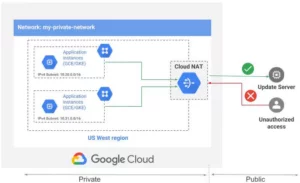In the vast expanse of cloud computing, UpCloud shines as a beacon of innovation and progress. With a relentless commitment to delivering unparalleled services and an insatiable thirst for advancement, UpCloud is set to unveil a dazzling array of updates and new features. Join us as we embark on a journey through the clouds to discover the exciting horizon of UpCloud’s future.

- Dynamic Expansion: Unleashing the Power of Hot Resizing Prepare to witness the evolution of scalability with UpCloud’s Hot Resizing feature. Say goodbye to the shackles of server restarts when scaling your infrastructure. With a mere flick of a switch, businesses can now resize their Cloud Servers in real-time, experiencing the thrill of uninterrupted growth. Whether it’s the e-commerce realm craving lightning-fast transactions or the gaming universe yearning for seamless multiplayer experiences, Hot Resizing unleashes the full potential of scalability, reducing downtime to a mere whisper.
- Unveiling New Cloud Server Plans: Empowering Flexibility and Performance A symphony of choice and performance awaits as UpCloud introduces a fresh lineup of Cloud Server plans. Brace yourself for an array of CPU and memory options, designed to cater to every nuance of your business requirements. No longer bound by limitations, businesses can tailor their Cloud Server configurations to perfection. High-performance computing, machine learning, and data analytics will experience a revolution as the curtains rise on these powerful and flexible options.
- Network Performance, Redefined: Riding the Waves of Speed and Reliability Prepare to surf the waves of lightning-fast connectivity as UpCloud revamps its network infrastructure, leaving no room for sluggishness. Witness the breathtaking upgrade to a blazing 100 Gbps network, unleashing a new era of speed and reliability. Whether it’s the fast-paced world of e-commerce yearning for rapid transactions or the mesmerizing realm of media streaming demanding flawless playback, businesses will revel in the enhanced speed and improved reliability, bidding farewell to latency and downtime.
How the UpCloud is Evolving:
1. Managed Kubernetes

UpCloud’s Managed Kubernetes service is a powerful solution that empowers businesses to effortlessly deploy and manage Kubernetes clusters. By abstracting the complexities of infrastructure management, businesses can focus on developing their applications and leveraging the full potential of Kubernetes.
Benefits:
- Easy to Use: UpCloud’s Managed Kubernetes service provides a simplified user experience, enabling businesses to deploy and manage Kubernetes clusters without the need for in-depth knowledge of Kubernetes internals. The service abstracts away the complexities of infrastructure provisioning, networking, and cluster orchestration, allowing developers to concentrate on application development.
- Scalability: With UpCloud’s Managed Kubernetes, businesses can effortlessly scale their clusters based on application demands. The service provides horizontal scalability, allowing businesses to add or remove worker nodes dynamically to meet increased traffic or workload requirements. This flexibility ensures optimal performance and resource utilization, even during peak usage periods.
- Security: UpCloud prioritizes security in their Managed Kubernetes service. By default, the service implements strong security measures to protect business data and infrastructure. Features such as role-based access control (RBAC), network policies, and container isolation ensure that applications and sensitive information are safeguarded. Businesses can rely on UpCloud’s secure infrastructure to meet compliance requirements and mitigate potential security threats.
Use Cases:
- Web Applications: Managed Kubernetes is an excellent choice for hosting web applications. Its ability to handle high traffic loads and distribute requests across multiple containers ensures reliable performance and fault tolerance. Businesses can easily deploy and manage web applications at scale, ensuring an optimal user experience.
- Mobile Applications: Managed Kubernetes provides a robust platform for deploying and managing mobile applications. The service’s scalability allows businesses to handle fluctuating user loads and easily scale resources based on demand. This ensures that mobile app users experience consistent performance and responsiveness.
- IoT Applications: With the exponential growth of IoT devices, managing the associated data and workloads can be challenging. Managed Kubernetes simplifies the deployment and management of IoT applications by providing an elastic infrastructure that can handle the data processing and analytics needs of connected devices. Businesses can leverage the scalability and distributed nature of Kubernetes to efficiently process and analyze IoT data.
- Data Analytics Applications: Data analytics applications often require substantial computational resources. Managed Kubernetes enables businesses to deploy and manage data-intensive workloads efficiently. With the ability to dynamically scale resources, businesses can handle large datasets and perform complex data processing tasks while benefiting from the fault-tolerant and scalable nature of Kubernetes.
2. Managed Databases

UpCloud’s Managed Databases for OpenSearch service offers a convenient solution for businesses to deploy and manage OpenSearch clusters. This service eliminates the complexities of infrastructure management, allowing businesses to leverage the power of OpenSearch without the hassle.
Key Points:
- User-Friendly: With UpCloud’s Managed Databases for OpenSearch, businesses can focus on utilizing OpenSearch’s capabilities without worrying about the underlying infrastructure. The service handles provisioning, configuration, and maintenance of the OpenSearch clusters, providing a simplified user experience for quick deployment and management.
- Scalability: The service enables businesses to scale their OpenSearch clusters based on application demands. Whether dealing with increased data volume or search queries, businesses can easily scale their clusters up or down, ensuring optimal performance and resource utilization.
- Security: UpCloud’s Managed Databases for OpenSearch prioritizes data protection by implementing default security measures such as network isolation, encryption, and access control. This ensures the confidentiality and integrity of business data, providing peace of mind.
Use Cases:
- Log Analytics: The service is ideal for log analytics use cases, enabling efficient storage, indexing, and analysis of log data. Businesses can gain valuable insights and troubleshoot issues effectively by leveraging OpenSearch’s powerful search capabilities.
- Search: OpenSearch’s fast and accurate search capabilities make it suitable for implementing search functionality in applications. Managed Databases for OpenSearch simplifies the deployment and management of OpenSearch clusters, enabling businesses to deliver robust search experiences to users.
- Analytics: Managed Databases for OpenSearch supports data analytics use cases. With OpenSearch’s aggregations, businesses can perform complex analytical queries and derive valuable insights. The scalability of the service enables efficient handling of large volumes of data and real-time analytics.
3. NAT Gateway

UpCloud’s NAT Gateway service is designed to provide businesses with a secure and compliant networking solution by enabling the creation of private networks that are isolated from the public internet. This service is particularly valuable for businesses that prioritize security and compliance in their operations.
Benefits:
- Increased Security: NAT Gateway enhances network security by creating a barrier between the private network and the public internet. It acts as a gateway that controls inbound and outbound traffic, allowing businesses to establish secure communication channels for their sensitive data and applications. By isolating the network, businesses can minimize the risk of unauthorized access and potential cyber threats.
- Compliance: Many industries, such as financial services, healthcare, and government, have strict regulatory requirements regarding data isolation and security. UpCloud’s NAT Gateway service helps businesses meet these compliance standards by providing a secure network environment that isolates sensitive data and applications from the public internet. This compliance-friendly solution enables businesses to adhere to industry-specific regulations and safeguard their data effectively.
Use Cases:
- Financial Services: The financial industry handles highly sensitive information, such as customer financial data and transaction records. With UpCloud’s NAT Gateway service, financial institutions can create private networks that isolate their critical infrastructure, protecting it from potential security breaches. This enhanced security ensures compliance with financial regulations and builds trust with customers.
- Healthcare: Healthcare organizations handle confidential patient data and must comply with strict data protection regulations, such as HIPAA. UpCloud’s NAT Gateway service enables healthcare providers to create secure private networks for storing and transmitting patient information. By isolating their network from the public internet, healthcare organizations can mitigate the risk of data breaches and ensure compliance with privacy regulations.
- Government: Government agencies and institutions deal with sensitive and classified information that requires robust security measures. UpCloud’s NAT Gateway service allows government entities to establish private networks that keep their data isolated and secure. By utilizing this service, government organizations can ensure the confidentiality and integrity of their networks, meeting the stringent security requirements set by government regulations.
4. Hot Resizing
UpCloud’s Hot Resizing feature is a powerful tool that enables businesses to resize their Cloud Servers seamlessly and without the need for server restarts. This capability is particularly valuable for businesses that require quick and efficient scalability of their infrastructure.
Benefits:
- Increased Agility: Hot Resizing empowers businesses with the ability to rapidly scale their infrastructure up or down in response to changing demands. Whether there is a sudden increase in website traffic for an e-commerce store or a surge in concurrent users for a media streaming platform, businesses can effortlessly adjust their server resources to meet these demands. This flexibility enhances business agility by ensuring that the infrastructure can adapt quickly to dynamic workloads.
- Reduced Downtime: With Hot Resizing, businesses can resize their Cloud Servers on the fly without the need to restart them. This eliminates the downtime associated with server reboots, ensuring uninterrupted service availability for customers and end-users. By avoiding downtime, businesses can maintain a seamless user experience, prevent disruptions to their operations, and minimize potential revenue loss.
Use Cases:
- E-commerce: The e-commerce industry experiences fluctuations in website traffic, especially during peak shopping seasons or promotional events. UpCloud’s Hot Resizing feature allows e-commerce businesses to scale their infrastructure resources instantly to handle increased user activity without any disruption in service. This ensures optimal performance, prevents website slowdowns, and provides a seamless shopping experience for customers.
- Media Streaming: Media streaming platforms often encounter varying levels of demand based on factors such as popular content releases or live streaming events. Hot Resizing enables these platforms to quickly adjust their server capacity to handle high concurrent user loads and deliver smooth streaming experiences. By seamlessly scaling resources, media streaming businesses can avoid buffering issues and ensure consistent playback quality for their users.
- Gaming: The gaming industry requires highly scalable infrastructure to accommodate multiplayer games, seasonal events, and game launches. UpCloud’s Hot Resizing feature allows gaming companies to dynamically scale their server resources to match player demand. This ensures a smooth gaming experience with minimal lag, enhances multiplayer interactions, and maintains the overall gameplay performance.
5. New Cloud Server Plans
Recently, UpCloud has introduced new Cloud Server plans that offer businesses a wider range of CPU and memory options. This expansion provides businesses with increased flexibility in selecting the most suitable Cloud Server configuration to meet their specific needs.
Benefits:
- Increased Choice: The addition of new CPU and memory options gives businesses greater flexibility and choice when selecting their Cloud Server configurations. Whether businesses require higher CPU power, larger memory capacity, or a balanced combination of both, UpCloud’s new plans cater to a variety of workload requirements. This enhanced flexibility allows businesses to optimize their infrastructure resources and align them with their specific application needs.
- Improved Performance: The introduction of new Cloud Server plans also brings improved performance benefits. With more CPU and memory options, businesses can allocate resources more effectively, resulting in better application performance. Whether businesses need to handle high computational workloads, run resource-intensive applications, or enhance overall system responsiveness, the expanded Cloud Server plans empower businesses to achieve improved performance levels.
Use Cases:
- High-Performance Computing: UpCloud’s new Cloud Server plans are specifically designed for high-performance computing (HPC) workloads like scientific simulations, rendering, and complex data processing. By selecting configurations with increased CPU power and memory capacity, businesses can effectively utilize the necessary computing resources to execute computationally intensive tasks efficiently.
- Machine Learning: Machine learning (ML) applications often require substantial computational resources. With UpCloud’s expanded Cloud Server plans, businesses can choose configurations that offer ample CPU power and memory for training ML models, processing large datasets, and deploying ML inference engines. This empowers businesses to accelerate their ML workflows, achieving faster model training and inference.
- Data Analytics: Data analytics workloads demand robust computational power and memory to handle large datasets, perform complex queries, and generate valuable insights. UpCloud’s enhanced Cloud Server plans allow businesses to allocate resources optimally for their data analytics applications, enabling faster data processing, advanced analytics, and efficient decision-making.
6. Improved performance:
UpCloud has made significant infrastructure improvements, including upgrading its network to 100 Gbps. These enhancements deliver notable performance benefits for businesses running their applications on UpCloud’s platform.
Benefits:
- Increased Speed: The upgraded network with 100 Gbps connectivity ensures faster data transfer speeds between servers and external networks. This accelerated speed enhances application performance and reduces latency, resulting in a smoother user experience. By leveraging this increased speed, businesses can deliver responsive applications and handle higher data loads efficiently.
- Improved Reliability: UpCloud’s upgraded network is more reliable, providing businesses with a stable and consistent infrastructure environment. The improved reliability helps businesses avoid potential network disruptions and minimize downtime, ensuring continuous availability of their applications and services. This reliability is crucial for maintaining customer satisfaction and avoiding revenue losses due to service interruptions.
Use Cases:
- E-commerce: In the e-commerce industry, fast and reliable performance is vital for delivering seamless online shopping experiences. With UpCloud’s improved network speed and reliability, businesses can ensure responsive and secure e-commerce platforms, quick loading times, and smooth checkout processes. These performance advantages help businesses maximize customer satisfaction, increase conversions, and drive revenue growth.
- Media Streaming: Media streaming platforms rely on efficient data transfer and low latency to provide uninterrupted streaming experiences. UpCloud’s upgraded network speed and reliability enable media streaming businesses to deliver high-quality streaming content with reduced buffering and smooth playback. These performance enhancements contribute to improved user engagement, increased viewer retention, and enhanced customer satisfaction.
- Gaming: The gaming industry demands low-latency, high-bandwidth networks for online multiplayer gaming and real-time interactions. UpCloud’s upgraded network performance ensures minimal lag, fast data transmission, and reliable connectivity for gaming companies. These improvements enable smooth gameplay experiences, reduced latency issues, and enhanced multiplayer interactions, fostering an immersive gaming environment.
Conclusion:
As the clouds part, revealing UpCloud’s upcoming updates and new features, it’s evident that the future holds boundless possibilities. From the seamless scalability of Hot Resizing to the symphony of choice and performance in the new Cloud Server plans, UpCloud paves the way for businesses to soar to new heights. With an upgraded network infrastructure promising lightning-fast speed and unwavering reliability, UpCloud is set to reshape the cloud computing landscape. Brace yourself for an extraordinary journey as UpCloud leads the way into the future of cloud innovation.
Host with Nestify.io as your managed hosting partner for Upcloud. Learn about its security measures here.
FAQs on Upcloud:
What is unique about UpCloud compared to other cloud providers?
UpCloud stands out for its focus on performance and reliability. It offers faster server provisioning times, superior network connectivity, and efficient storage infrastructure. Additionally, UpCloud provides a transparent pricing model with hourly billing and the ability to scale resources vertically or horizontally.
What type of storage does UpCloud provide?
UpCloud utilizes high-performance SSD storage for optimal data access and reliability. It ensures fast read/write speeds and low latency, contributing to overall improved server performance.
Can I scale my resources with UpCloud?
Yes, UpCloud allows vertical and horizontal scaling of resources. Vertical scaling involves increasing or decreasing the CPU, RAM, or storage capacity of a single server. Horizontal scaling involves adding or removing servers to distribute the workload and improve performance.
Does UpCloud offer automated backups?
Yes, UpCloud offers automated backups as part of its service. You can schedule regular backups of your servers and restore them when needed. This feature helps in data protection and disaster recovery scenarios.
Is there an API available for automation and integration?
Yes, UpCloud provides a robust API that allows you to automate various tasks, manage resources, and integrate with other systems or applications. The API enables seamless integration and control over your cloud infrastructure.



